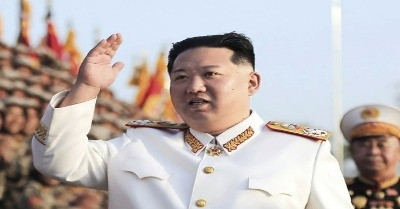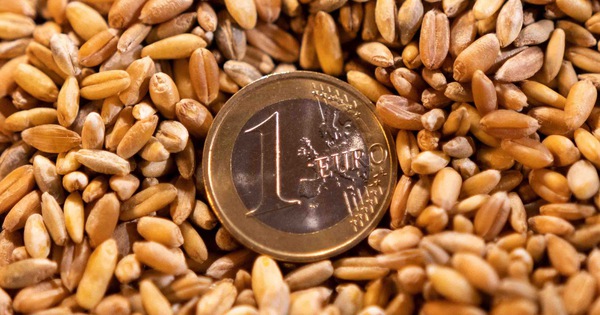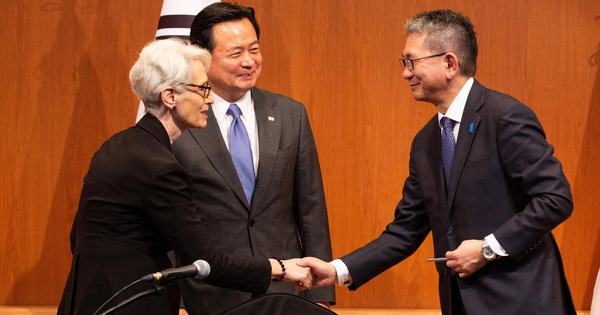The EU wants to form a group to buy gas to increase its position in efforts to reduce dependence on Russia, but the plan faces many difficulties.
The leaders of the European Union (EU), the 27-member bloc, last week condemned Russia’s military campaign in Ukraine and outlined steps to reduce dependence on Russian energy sources.
One of the steps outlined by the EU in the statement is to “work together on a voluntary basis” to jointly purchase gas and other fuels, in order to “make the most of the EU’s political and market position.” alliances and member states to reduce energy prices in the negotiations”.
This model has been successfully used by the bloc to cooperate in the purchase of a Covid-19 vaccine, when the union said that “joint action by the whole EU is very important to ensure a vaccine supply for everyone”.
However, gas seems to be much more of a headache. America Hernadez, analyst at Politicopointed out a number of reasons why it is difficult for the EU to agree to establish a common gas purchasing system to increase collective strength in the energy confrontation with the EU. Russia.
This model is only effective when All member countries agree, according to Hernadez. Purchasing power will be most effective if you buy in bulk, but it is currently unclear what percentage of the block’s gas will be purchased under the proposed scheme.
With this model, the European Commission would have to establish a common contracting platform for interested countries, in which they pool gas orders and match supplies through negotiations. Bilateral negotiations with major gas producers.
However, many EU countries are tied to long-term gas contracts. “If the general purchasing platform is only to buy an additional amount of gas, it will be less attractive,” Hernadez said.

The liquefied gas tanker Nikolay Urvantsev at the port of Boilbao, Spain on March 10. Photo: Reuters.
The current global gas crisis means producers can set record prices for their limited supply. As a result, they will need to gain other benefits to consider selling to the EU at a lower price, especially if the deal could hurt longtime customers.
“I don’t see any manufacturers giving up on profits and traditional customers unless they get it political interests very large, which the EU is probably unlikely to be able to provide. That only the US can do,” said Brenda Shaffer, senior fellow at the Atlantic Council’s Center for Global Energy.
Georg Zachmann, a member of the Bruegel Institute in Brussels, Belgium agrees with this statement.
“It will take a lot of money. If the European Commission signs deals worth tens of billions of euros with gas-producing companies, it will have to consider politics when deciding who to buy from and how much to pay. much,” said Zachmann.
A common gas purchasing platform is also possible break EU competition rules, according to Hernadez. It could be illegal for EU countries to join hands to squeeze gas prices, depending on who the buyer is and how much pricing information is available.
The European Commission statement did not specify who would represent the bloc in these joint purchases, while the French President Emmanuel Macron says “it’s not the government but the companies that will sign the contract”.
But the EU’s use of a special joint purchasing platform to negotiate gas deals in favor of private or partially state-owned companies should raise alarm bells about antitrust.
“Companies participating in the joint buying platform will come from a variety of member countries, most of which may be government-owned. Then the question arises as to who will decide which companies to join. participate in the common buying platform and what are the conditions to get involved,” said Kim Talus, a professor of energy law at Tulane University in Louisiana and the University of Eastern Finland Law School.
Another issue is that to ensure a better deal, “you have to share commercially sensitive information. “People will know other people’s suggested rates, which are usually not disclosed to the public. competitors,” added Talus, pointing out that this behavior could be a form of “hidden collusion.”
However, companies can circumvent the law by secretly sharing information with the European Commission. The EU’s competition law also allows for exemptions, especially when an agreement is reached that improves the distribution of goods and provides a fairer sharing of benefits among consumers in the bloc.
Gas division after buying together will also be a headache for the EU. EU member states have varying degrees of dependence on Russian gas, and not all of them have storage facilities or have direct access to imported gas storage at ports.
That creates a lot of trouble when it comes to allocating gas and accounting for the final price, including the cost of turning the liquefied gas into gas and transporting it to individual countries by pipeline.
“The main challenge is distribution. They have to figure out how to ensure a risk-sharing that all parties can accept,” Zachmann said.
Observers say there is also no guarantee that gas storage countries will deliver them to neighboring countries as committed if they face a severe cold spell or supply problems.
“EU countries often have many disagreements and when the period of international solidarity because of conflict Ukraine If it passes, this trend will definitely return,” said Hernadez.
Sanberg also raised possible controversies over the allocation of gas jointly purchased by the EU. “Why does Germany have priority? Why does Spain put a price ceiling on gas but still have access to preferential gas? Who will decide the division of gas, based on old or new data?”, she poses hypothetical questions.

A construction site of the Nord Stream 2 pipeline in Kingisepp, Russia 2019. Photo: Reuters.
The European Commission wants a joint buying group to be set up this summer so that the EU can fill up its gas reserves for the coming winter. But the EU is a huge customer in the gas market, so any word from this union is possible impact on prices.
In March, the European Commission proposed requiring member states to fill 90% of their stockpiles by October 1, a move that caused gas prices to rise from 70 euros per megawatt hour in January to 210 euros. /megawatt hour (more than $232) in early March. The commission quickly withdrew the proposal, saying it wanted the reserves to be 80% full by November 1, causing gas prices to fall to 108 euros. /megawatt hour.
“Just by saying what they want, the European Commission has made it harder to get it done,” said Tom Marzec-Manser, head of gas analysis at the company ICIS.
Observers say this is an example of the unintended consequences of market intervention, and the EU’s cherished gas grouping effort could have the same effect. “Market intervention will only continue to drive gas prices into the future,” said James Huckstepp, gas analyst at S&P Global Platts.
Thanh Tam (According to Politico)
at Blogtuan.info – Source: vnexpress.net – Read the original article here



